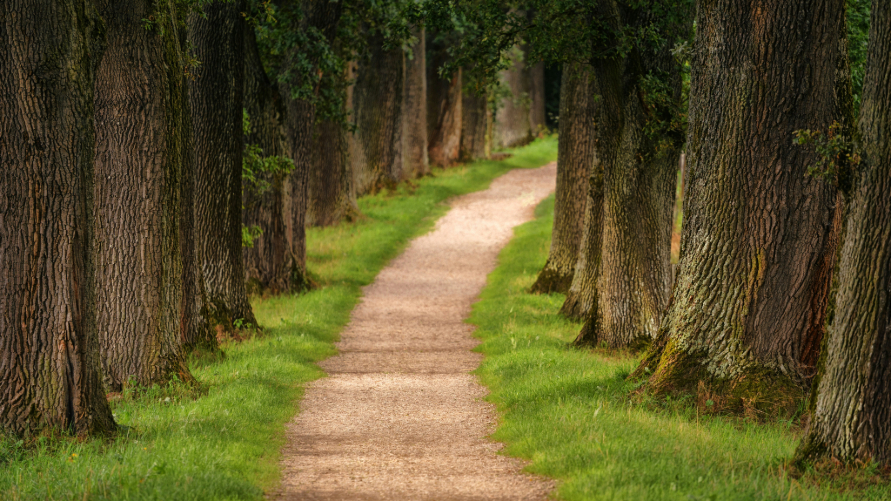UNC’s legendary basketball coach, Dean Smith, was the master of the “four corners” offense. When his team would get the smallest of leads—even just one or two points—they’d put their big guy in the middle and spread out their other players to the four corners. Having made so much space, they’d essentially play keep-away for the rest of the game. It was infuriating for opposing teams—and a little boring to watch at times. But it led them to victory over and over again (until the NCAA changed the rules, introducing a shot clock to speed things up).
You probably don’t know it, but the Bible shows us a four corners strategy too. Of course, if you mentioned “four corners” to the average Israelite, they wouldn’t be thinking of sports—and not just because basketball wouldn’t be invented for thousands of years. To the average Israelite, “four corners” immediately reminded them of the book of Leviticus, where God gave the people laws about harvesting their crops.
In Leviticus 19, we read that the people, most of whom were farmers, were commanded not to reap their fields all the way to the edge. They were intentionally to leave the borders of their fields unharvested so that the poor and the sojourner could glean from those sections. The “four corners” of each field were for the poor.
In fact, these corners, these edges, weren’t just designated as charity. In Deuteronomy, where God repeated this command, he went so far as to say these corners belonged to the poor. If you reaped all the way to the edge of your field, you weren’t just being stingy. In God’s eyes, you were literally stealing from the poor.
The concept was as simple as it was profound: Israelites were to share from their abundance with others around them in need, all the while not depriving the poor of the dignity of providing for themselves. It was a beautiful system, designed to meet needs, create dignity, and cultivate humility all at once.
But here’s the interesting thing about this “four corners” command. God is crystal clear that each field has to have un-gleaned corners. But nowhere in Scripture does God say how much of the corner should be un-gleaned. Technically, you could leave a space of two or three square feet at each corner and you’d have obeyed the command. And, of course, some people did precisely that. But others, recognizing the spirit of the command, left huge corners un-gleaned.
Here’s what this means: In ancient Israel, a family’s generosity was displayed for all to see. It was literally measurable, depending on how much of their corners they left for the poor.
This is a challenge for contemporary people like us, because we don’t like the idea of public generosity. There are good reasons for this, like Jesus’ warning that we ought not to give in such a way that garners praise for ourselves (Matthew 6:1–4). But Jesus also warns that we’re not supposed to pray in ways that garner praise from others (Matthew 6:5–8). Yet, very few of us insist that the only appropriate prayers are private ones.
The Bible presents to us a pattern of giving that may make us uncomfortable, but it’s pretty consistent: Traditionally speaking, generosity is public. We see that in the “four corners” command, for instance. And all throughout the Bible, God’s people are often encouraged toward public acts of generosity as a way of glorifying God and declaring our solidarity with his mission. We’re to let our light shine before men by our good works that display and point toward God’s glory, all the while avoiding the danger of seeking the praise and commendation of others (Matthew 5:16).
When preparing to build the tabernacle, Moses and the leaders gave publicly, first, as a way of inspiring and instructing the people. David and Solomon did the same during the building of the temple. Jesus praised the woman who broke the alabaster flask of perfume over his feet publicly. And in the book of Acts, early Christians brought their offerings publicly and laid them down at the feet of the apostles.
In none of these situations does the Bible say they drew attention to themselves or desired the praise of people. In all of them, they showed the world the worthiness of God and their solidarity with Jesus’ mission.
I’m not insisting that every act of generosity be made public. Our culture has changed, and we aren’t farmers anymore. But the public nature of “four corners” giving sets a model that we would be wise to follow. Generosity isn’t meant to be hidden; it’s meant to be displayed. Not so that we can get pats on the back, but so that others can be served and God can be glorified.
So—how big are the “four corners” of your field? What would it take to make them a little bit bigger, giving more toward the poor and toward God’s mission? And who can you invite into your life to hold you accountable in the area of generosity?


